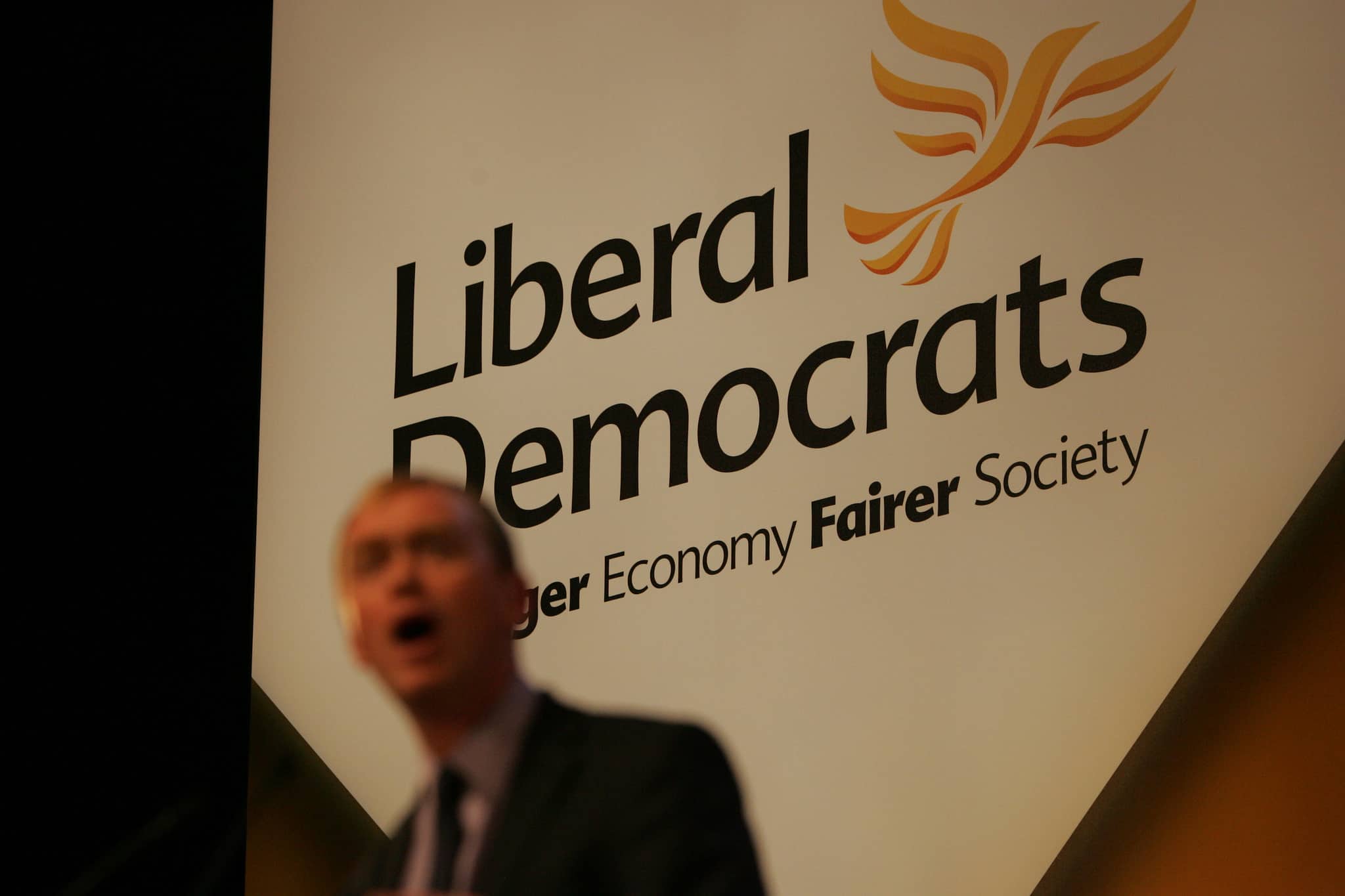You probably have not heard of Tim Farron. To be honest, I’d never heard of him either, until this week when he resigned as head of the UK’s Liberal Democrats after his party received only 12% of the vote and 12 seats in the recent general election. For any party leader, that’s not good enough and most would quit after a result that miserable.
That’s not why he resigned, though. Farron decided to quit because he felt he could not continue in his present job and still live as a faithful Christian. He realized that his faith and his job were simply incompatible.
Farron, who is Evangelical, said that, “From the very first day of my leadership, I have faced questions about my Christian faith. I’ve tried to answer with grace and patience… At the start of this election, I found myself under scrutiny again – asked about matters to do with my faith. I felt guilty that this focus was distracting attention from our campaign, obscuring our message.” In the end, Farron decided to resign, concluding that “to be a political leader – especially of a progressive, liberal party in 2017 – and to live as a committed Christian, to hold faithfully to the Bible’s teaching, has felt impossible for me.”
A politician blaming the media for his troubles is not striking an original note. At the same time, the Lib Dems’ campaign was hampered by consistent media questioning of Farron’s personal beliefs, rather than of his party’s proposals. Specifically, Farron was asked repeatedly if he considered abortion and same sex marriage sinful, even though he and his party affirmed the current laws allowing both and that he personally regarded neither as sinful. Rather than talking about Brexit, the economy, or the NHS, Farron was expected to be a moral theologian and was held up to scrutiny for his private beliefs rather than his policy proposals. It is worth noting that neither Theresa May, who is a practicing Anglican, nor Jeremy Corbyn, who is agnostic, were asked such questions, let alone with any kind of frequency.
While he admitted that “a better, wiser person than me may have been able to deal with this more successfully, Farron expressed frustration that, despite a long period in public life and a long record to stand by, there seemed to be a presumption against him due to his religious affiliation that prevented him from making his voice heard and from balancing his duties as a believing Christian and as a political leader.
Farron is speaking not just of electoral difficulties but personal difficulties: how could he go on as a leader of his party and advocate for their policies when people’s opinion of his faith, which by his own admission is central to his life, prevents him from doing that task effectively? His belief – that in a liberal society, people could disagree about their personal beliefs so long as the rights and liberties of persons were affirmed and preserved – did not seem to hold with many. In the end, he found no other solution and so resigned.
***
It may be hard to see what this has to do with any of us. Most of us are not, nor ever will be, leaders of political parties and I suspect many of us will never have to face the sort of public scrutiny that Farron experienced over his beliefs. Yet Farron’s dilemma is different from us only in degree and not in kind. We do, after all have to live within a diverse society that compels us to live together with a certain degree of tolerance, even amidst the complications of life in our social and political moment. Every one of us is called to be a part of our particular platoon of society. In a diverse and pluralistic society, that puts us in contact every day with people who may find our beliefs on any number of subjects annoying, distasteful, and even downright abhorrent. Those people may be those closest to us.
If people cannot accept Farron’s argument that so long as we respects the basic rights of others our personal beliefs are just that, then the challenge of living in community with people who may find our simplest and sincerest beliefs genuinely uncomfortable and even threatening may be too much to bear. Family, friends, and acquaintances may be confused by what we say and what we may think about public issues. They may wonder why we believe this or that about a certain news item. They may gasp at the candidates for whom we vote. They may be indignant or even hurt at our take upon the major social questions of our time. We can be judged and found wanting, as Farron seemed to be, based on a presumption. Many of us, I think, struggle with that tension and can be convinced that it is better to play things closer to the vest and reveal as little as possible. I struggle with this temptation every week.
Confronting the awkward possibility of disagreeing with or even offending those around us for our sincere beliefs, we may feel the simple pull to disengage and to withdraw into our own bubbles. We can leave the questions of society to those who can more comfortably inhabit that tension or those who do not experience it all. We may feel safest in keeping to ourselves and hope that nobody expects much out of us.
Or, we might choose to be confrontational, demanding that what we believe must be accepted by everyone around us simply because we believe them. The legitimate opinions and feelings of others must take second place to the assertion of our own truth. We may say that true diversity will never work, so it will be better to carve up territory for our particular tribe.
And yet, there can’t be genuine encounter when these are our responses. They may be perfectly reasonable response, but those are not the lives to which Christians are called and is no path to peace in a diverse society for anyone, Christian or not. So, rather than shrink away from tension or rush towards it, we may have to admit that the Holy Spirit is calling us to live within that discomforting tension, admitting we may not have all the answers but remaining sincere in our convictions all the same. For Tim Farron, resigning as leader of his political party freed him from an unnecessary and unhelpful tensions that impacted how he could be a better disciple of Christ and a decent public servant and I admire him for doing so.
But what does that mean for the rest of us? We cannot resign from the responsibility to listen to others, to be faithful, to be hopeful, and to be loving.
Perhaps the solution is for us to admit to each other that we are flawed people, trying as best we can to make sense of our world, and that we are never bearers of perfectly integrated, perfectly rational, and perfectly acceptable systems of understanding the world, as much as we would like to think we do or as much as other people expect us to. That admission might free us to take ourselves a bit less seriously and to love others much more completely.
That won’t make the tension dissipate. It might not solve all our problems, either. But it might keep us lovingly engaged when we want to run away or draw our swords.
***
Image courtesy FlickrCC user Liberal Democrats.


